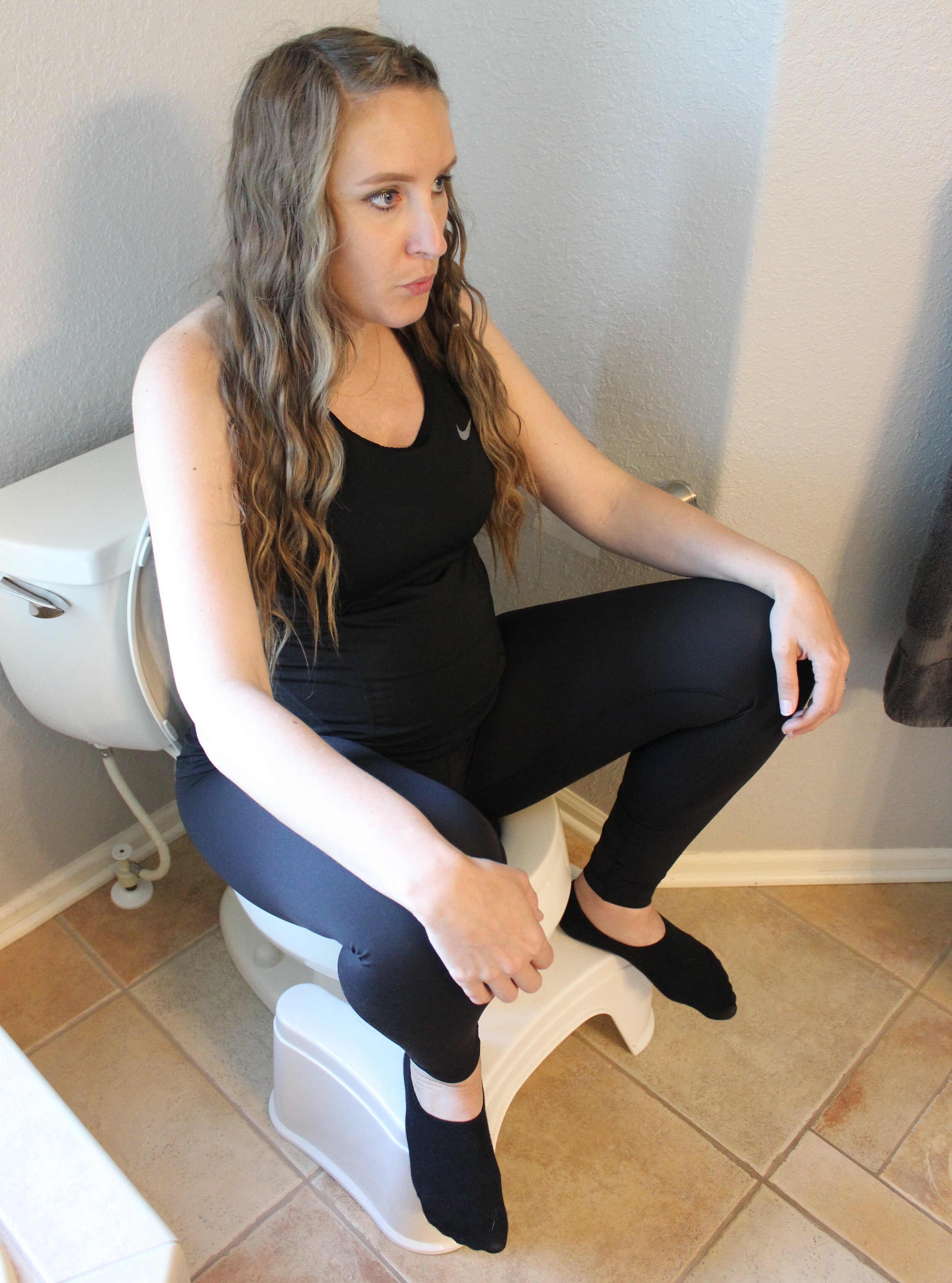Tips For Pooping During Pregnancy
Your body goes through a lot of changes during pregnancy. One of the changes you’ll notice is your bowel movements. This happens for a few reasons (1):
Rising progesterone levels and falling motilin hormone levels slow down your bowels
Increased water absorption in your intestines, causing stool to dry out and become harder to move
Increased vitamin supplements (iron and calcium) can also be a factor
Your growing uterus can slow the movement of your stool through your gut
These bowel changes can be uncomfortable and even painful for some women. So how do you keep your gut healthy and stay regular? Keep reading to find out.
Tips for Preventing Constipation in Pregnancy:
Create a bowel ritual
The colon is a very habitual organ, so it helps to create a bit of a “bowel ritual.”
Take your time, sit without distraction even if you don’t have to go (except if you have hemorrhoids. More on that here).
Drink something warm (tea, coffee, hot water with lemon).
Lie on your left side in the morning. This is where are descending colon is so gravity helps it bring it closer to the exit.
Add movement to your morning or day. Movement helps our bowels regulate.
Listen to your gut (literally)
We have an internal sphincter that gives us a signal that says “Hey girl, you have 20 minutes and then we have to drop a load.” If you ignore this signal, the internal sphincter stops sending you the signal. Much like a declined friend date, they stop asking if you never go.
Listen to these signals! No matter where you are: work, public, or at home — if you get the signal, go.
When pooping use a squatty potty to get your knees up above your hips and blow out like you are blowing out birthday candles.
Create the perfect bathroom set up
Squatty potty. Squatty potties help keep your knees above your hips. This puts the pelvic floor in an optimal position and allows it to relax. We use this one.
Relax the pelvic floor. Use imagery. Think of a flower blooming, a claw machine releasing, or picture your pelvic floor as a diamond and the front, back, and sides of the pelvic floor expanding
Exhale. Breathe out through your mouth like you’re blowing out birthday candles so that all of your pressure is not downward.
Find your zen. It’s important to relax. If you have toddlers, you can even let them sit by you and cuddle if you find that calming.
Keep your system happy
As my clinic instructor used to say: “garbage in, garbage out.” Make sure you’re eating the right foods and taking the right supplements to keep your system happy.
Insoluble fiber. Think raw veggies, raw fruits and prunes.
Prenatal vitamin. Most prenatal vitamins have folic acid and iron. While folic acid can be good for preventing constipation, iron can actually cause it. Make sure to talk to your doc about your prenatal vitamin options if you’re struggling having any troublesome gastrointestinal symptoms.
Water. Hydration is important for you, your baby, your bladder, and your ability to poop. Half of your body weight in ounces is a great starting point for daily intake.
Stool softener and soluble fiber. These can make going easier. You can use cheap, generic versions from your local pharmacy. Always talk to your doc if you have concerns.
Foods to help with constipation (2)
References
https://www.theprenatalnutritionlibrary.com/?r_done=1


